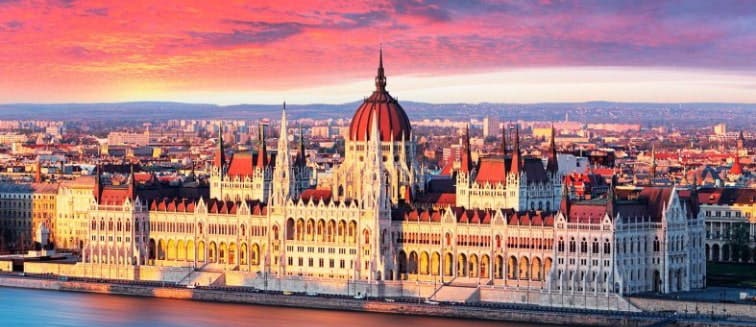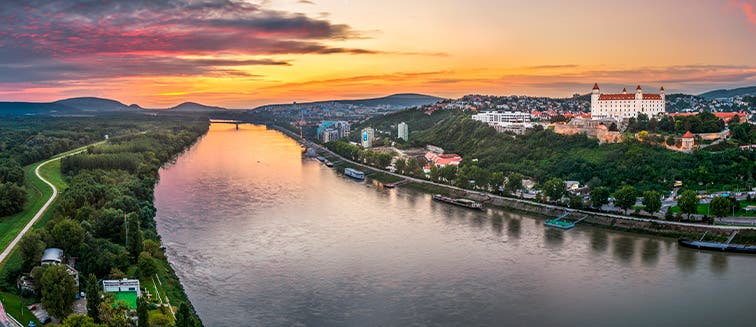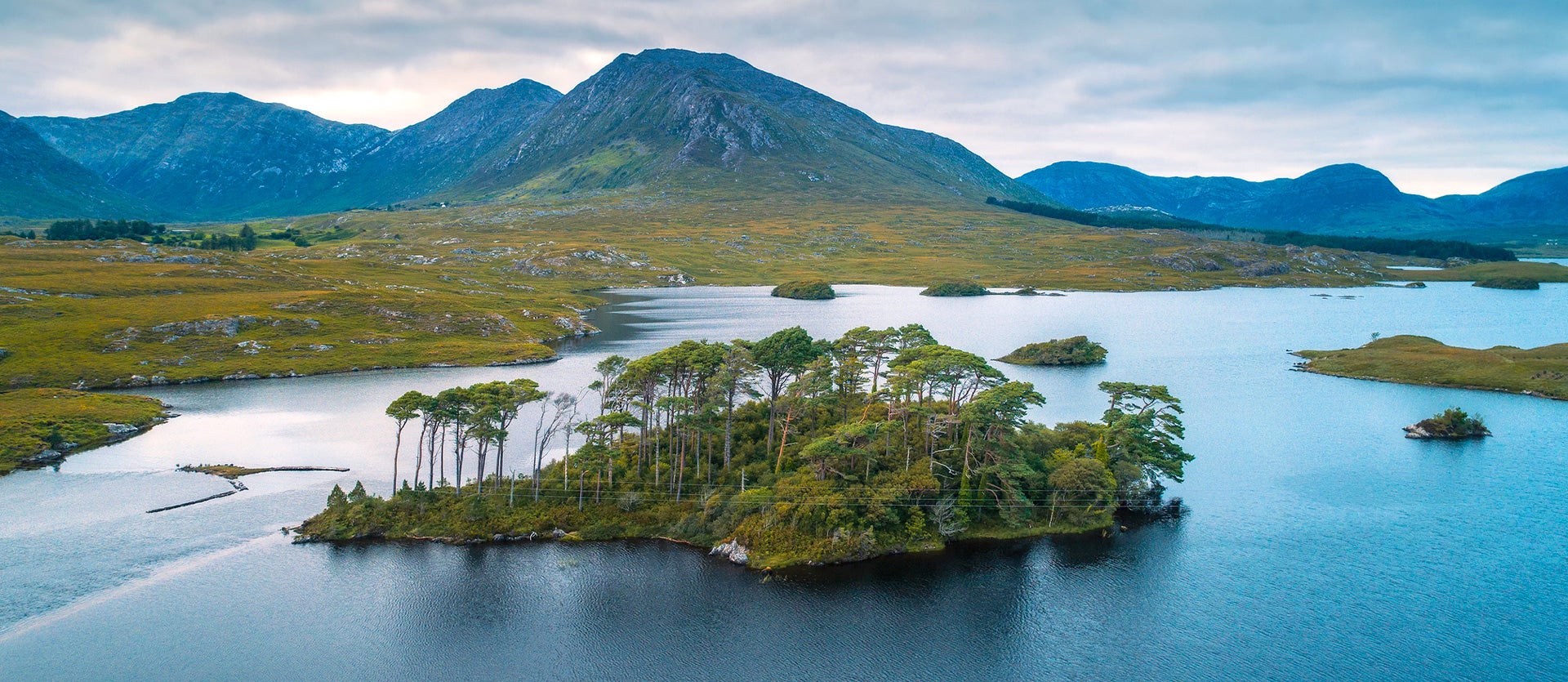A Central European country in the Carpathian Basin, Hungary is landlocked by Austria, Slovakia, Ukraine, Romania, Serbia, Slovenia and Croatia and is home to what is considered to be one of the ‘most beautiful cities in the world’, the capital of Budapest. The characteristic images that spring to mind when imagining a trip to Hungary are of grand buildings on the banks of the River Danube, indulgent bathhouses, fairy-tale castles and glistening lakes, all of which can be found inside the country’s borders. Hungary is a treasure trove for lovers of architecture, and not just in Budapest but throughout the country where you are likely to stumble across baroque churches, Roman ruins and plenty of neoclassical and art nouveau buildings.
The country is also known for its thermal springs, spas and rich folklore traditions. Furthermore, it’s a paradise for foodies who can indulge in it’s much revered and sophisticated cuisine. Aside from the dominant capital city, other smaller, but no less charming, cities include the ecclesiastical center of Debrecen, the baroque city of Gyor and the university town of Pecs. A member of the European Union and the 13th most popular tourist destination in the world, a tour of Hungary needs to be on your travel itinerary!
History of Hungary
The territory of modern-day Hungary has been inhabited by a multitude of different tribes and communities over the centuries, ranging from the Celts to Germanic tribes and Slavs. Conquered by the Roman Empire in the 1st-century BC, this powerful empire built a city settlement in Aquram, which still remains today as the modern district of Obuda in Budapest. On a tour of Hungary, you can even visit the ancient ruins of this settlement whilst exploring the capital for an insight into the city’s past. As the centuries progressed, so the Huns, Ostrogoths and nomads left their mark on the country until the 9th-century when the Hungarian state was established and adopted Christianity as the state religion.
This state held significant power over the region, but Ottoman occupation marked the end of its powerful reign. Like much of the region, Hungary became absorbed into the Habsburg Empire, eventually joining with Austria to create the Austro-Hungarian Empire, a major European power. This union collapsed following the devastation of World War I, and Hungary lost large parts of its territory. In World War II the country was one of the Axis Powers and suffered severely. The rise of socialism in the region following the global conflict also affected Hungary, which acted as a Soviet satellite state up until it was declared a democratic republic in 1989. On a trip to Hungary, you can witness how both Eastern and Western influences have shaped this unique nation.
Nature in Hungary
Although the first thought to spring to mind when imagining Hungary is the sweeping architecture of its sophisticated cities, the country also boasts a spectacular natural environment characterized by hot springs, open plains and winding rivers. The two major rivers are the Danube and the Tisza which divide the country and the country’s terrain can be categorized into two distinct areas: the hilly Transdanubia region, with modest mountain ranges, and the Great Hungarian Plain, which covers most of the country. There are plenty of natural attractions to enjoy on a holiday to Hungary including 10 national parks, the most famous of which is the Hortobagy National Park, a UNESCO World Heritage Site which combines fascinating folk culture with beautiful grassy plains home to Hungarian grey cattle, water buffalo, horses and the unusual Racka sheep, with their distinctive spiral horns.
Hungary is famed for its thermal waters and the best example of this can be enjoyed at Lake Heviz, the second largest thermal lake, suitable for bathing, in the world. This body of water has been prized for its natural healing properties for centuries and today serves as a medicinal thermal bath, strewn with water lilies. A trip to Hungary is incomplete without treating yourself to a relaxing bath in its mineral-rich waters. Another notable lake is Lake Balaton in the Transdanubian region, a popular holiday destination and the largest lake in Central Europe.
Culture in Hungary
Hungary is known for its rich folk traditions, demonstrated in its traditional arts, crafts, music and dances. Embroidery is the most well-known aspect of Hungarian traditional crafts, but ceramics can also be found in abundance in markets and artisan shops throughout the country. It also has a prolific literary tradition but, sadly, this is rather unknown to the rest of the world due to the lack of Hungarian-speakers outside of Hungary.
Hungarian is, in fact, a unique Uralic language, which shares little similarities with other European language families. Although the majority of the population is ethnically Hungarian, there is a large German and Romani population, which ensures a rich and diverse cultural landscape. Historically, Hungary has been a Christian country, which is evident in its numerous religious monuments and buildings, such as the amazing Basilica of Esztergom, the seat of the Catholic church in Hungary. There has also been a significant Jewish population for many centuries, which explains why many major cities in Hungary have a Jewish Quarter. The largest synagogue in Europe, the Great Synagogue can be found in Budapest, an unmissable stop on a tour of the city.
Get to know a sophisticated culture in the eternal cities, stretching plains and life-giving lakes of Hungary, the Heart of Europe.



















